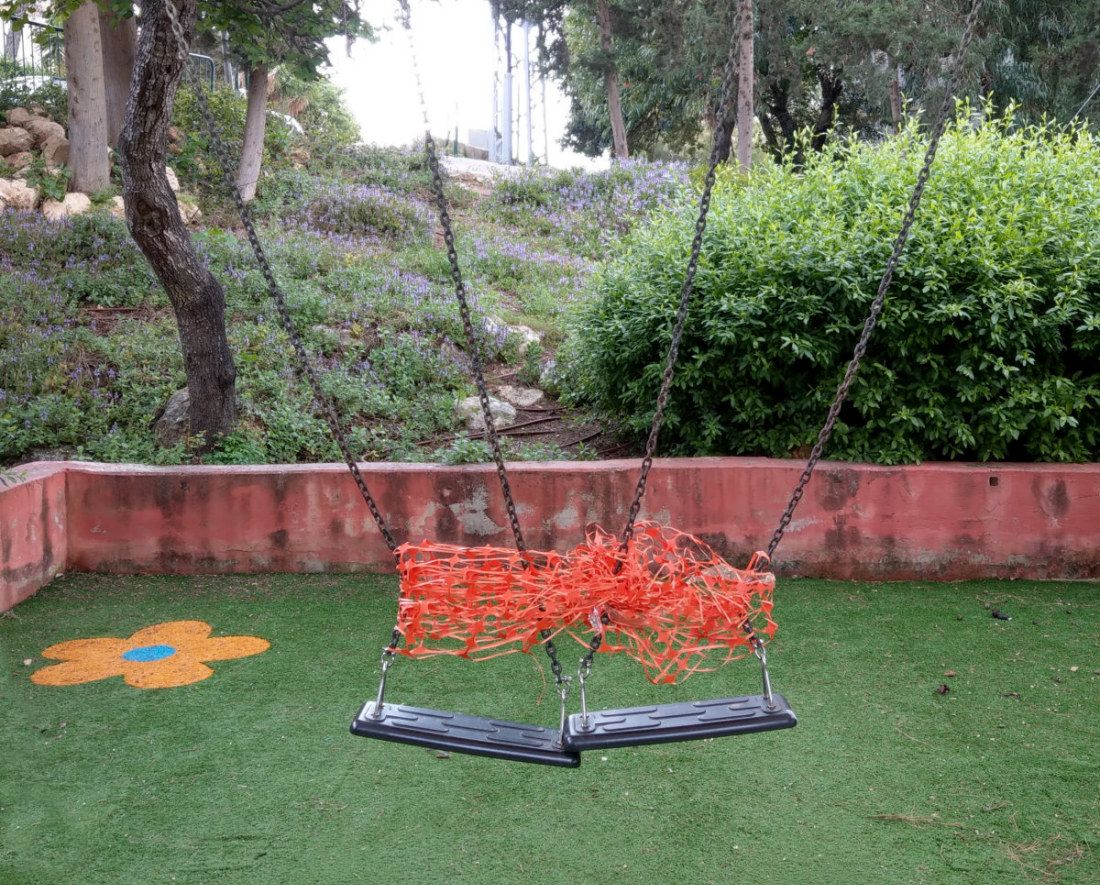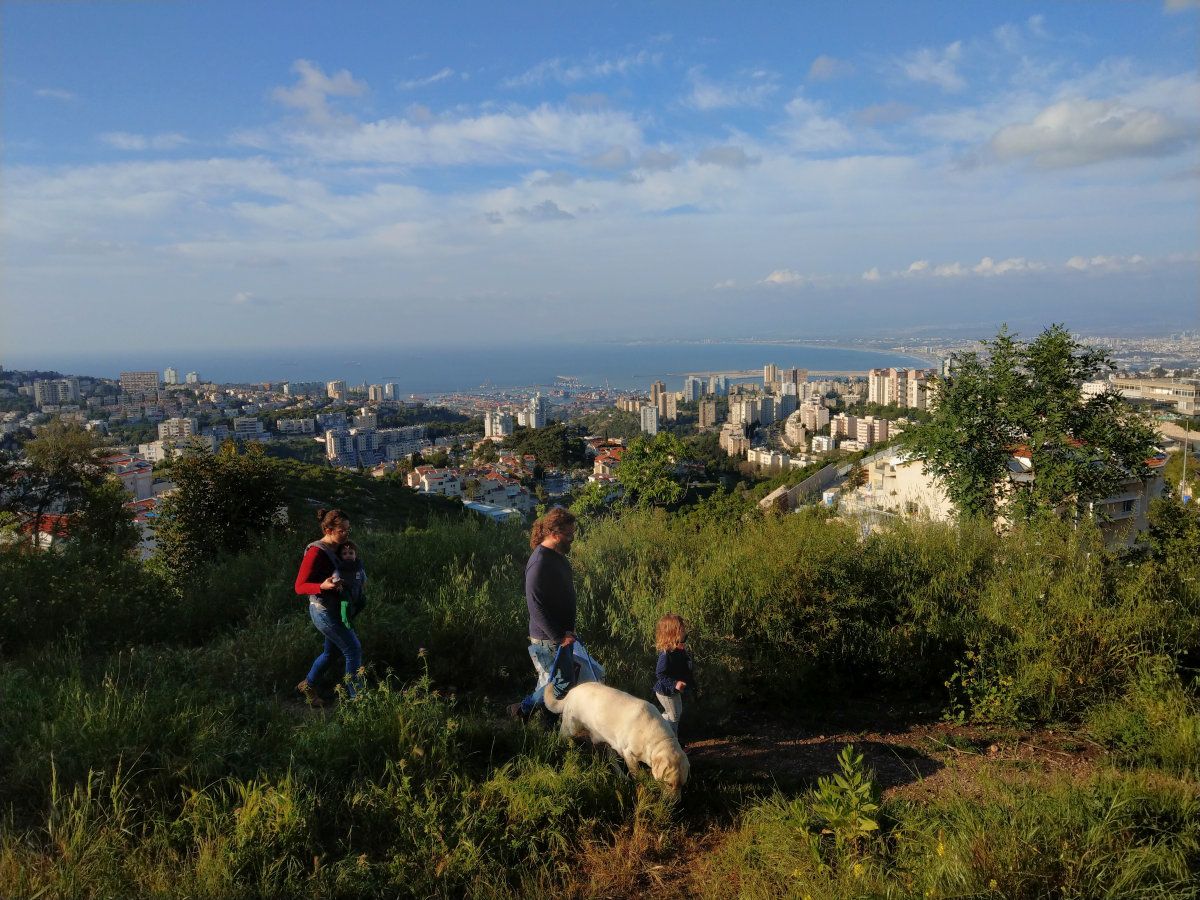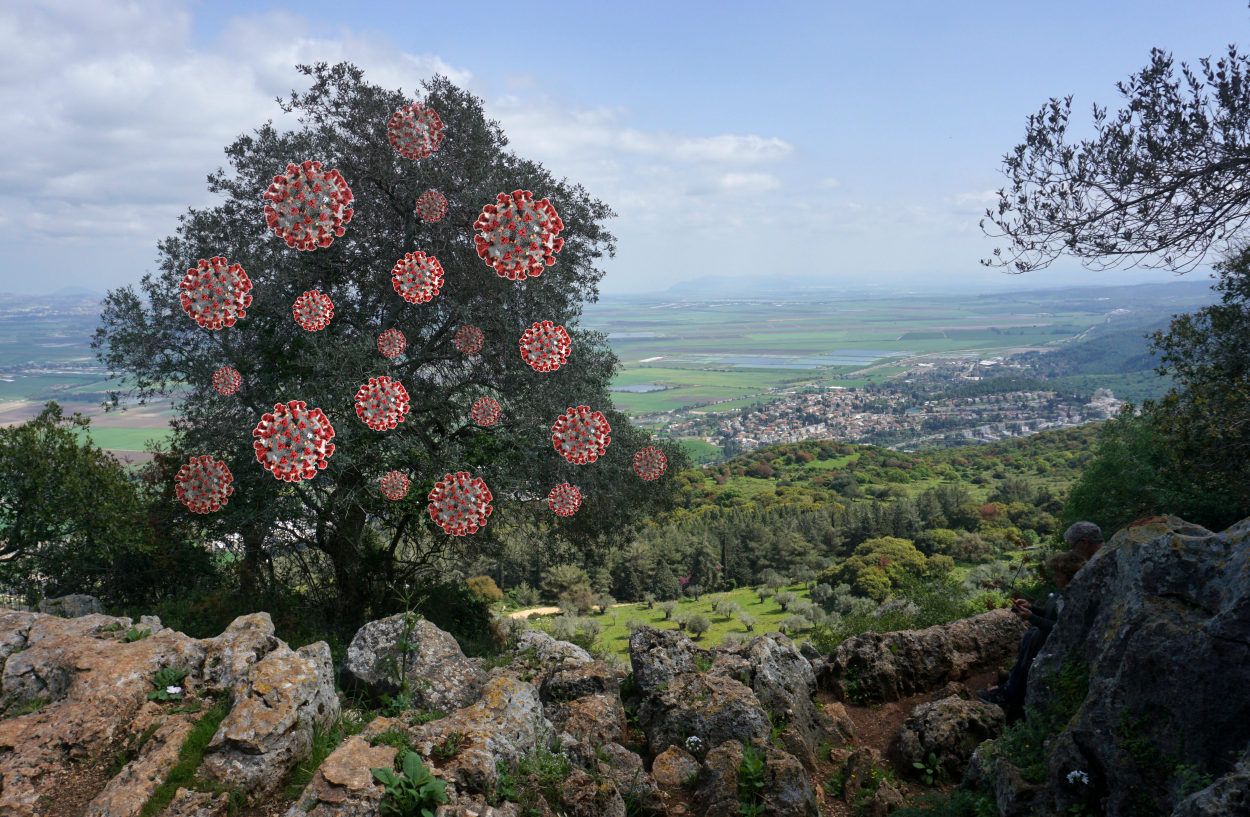Israelis wished for trees, green spaces and a café, most of them missed the sea, hugs and a grocery store, were looking for a quiet corner at home, and some wish to slow down.
Trees, open spaces, friends and family cannot be obtained online or via delivery services. This is one of the insights from an independent Coronavirus questionnaire, I conducted in a collaboration with the Israeli magazine XNET. The month and a half long lockdown at home began on March 25th, 2020. It was an unfamiliar and unprecedented experience in our relationship with the environment, with our relatives and friends, and with ourselves. At its peak, roaming around was restricted to a radius of only 100 meters from home.
Hundreds of Israelis participated in the questionnaire, providing overwhelming insights into the situation via detailed answers to open-ended questions. The median age of the respondents was 48, with a variety of family situations and a variety of localities (21% rural, 28% isolated towns and edge cities in a metropolitan area, 51% metropolitan and major cities). Respondents from the Arab sector were absent, and the representation of the ultra-Orthodox was meager and disproportionate.
No playground for you. Come back one month
So how did Israel experience the lockdown? Here are the notable findings
Social distancing was hard, we took comfort in nature
The most significant factor that helped most to overcome the lockdown weeks was the open and green spaces at home vicinity. 68% of respondents cited this as the most positive factor. For those living in rural areas it was easy to take advantage of the agricultural areas and the surrounding natural landscape, as well as using the private open area at home. For those living in the city, the public gardens and parks remained the main refuge, and to some extent the common areas of the building (courtyard or roof).
Only 8% of respondents cited street and architecture as satisfactory factors. This is another proof of the powerful effect of trees on our well-being, much more than building and urban design. “There is a sense of nature on my doorstep. I have a good friend living two buildings away from. I could meet and talk to her coincidentally. I have a large garden that saved my mental health. I have a walking path I repeated hundreds of times with notable ascends. I have a grocery store in front of my home.” – A 43-year-old mother from Haifa wrote.
What else did we enjoy near our homes? Adjacent food sources such as supermarkets, grocery stores and kiosks. 25% of respondents cited them as essential. When the going gets tough, it seems that bare necessities are enough to bring us pleasure.
The open areas, green landscape and access to nature were lacking for many Israelis, especially those who adhered to the lockdown distance restrictions, and were not able to enjoy green areas near their homes. The responses to the questionnaire indicated that restricting movement and freedom in general was harsh, causing feelings of suffocation and gloomy atmosphere (10% of respondents explicitly stated this). In particular, many missed access to the sea or access to bodies of water in general (indicated by 9% of respondents). Closing of cafes prevented people from socializing, and many respondents cited this as a notable drawback. “The sea. These blue waters that provide a sense of tranquility. I was not satisfied that accessing it was limited” – A 63-years-old woman from Haifa wrote.
However, the greatest difficulty we experienced during lockdown concerned social distancing from friends (27% of respondents stated this difficulty) and family (33% of respondents stated this). Many of the respondents elaborated, in their own words, on the intense lack of physical contact and their need to meet, look, touch and hug. “To be alone day after day and night after night. The walls have already started speaking to me” wrote a 67-year-old Nahariya resident who lives alone.
These findings support what we already know about ourselves – people are social creatures. Indeed, the quick return to gathering outside proved that social life is the strongest of all.
Young people as well as seniors living alone complained of loneliness and seclusion (14% and 24% of respondents, respectively). “Not seeing and hugging the family… not seeing my new niece… the lack of contact” wrote a 31-year-old woman from Hod Hasharon. “The disconnection from my children gets me off balance. The fact that they don’t come for a Friday dinner, that I can’t touch them, even though they are parents themselves, hug them, embrace the grandchildren, read a story. It is highly difficult” – Wrote a 65-years old woman from Tirat HaCarmel.
Grownups who live with their parents, as well as parents of children who had to stay at home due to the education system shutdown, found it difficult to cope with the crowded house, and many of them complained about the “no moment to myself” feeling.
How many Israelis were worried about the disease itself? Although the lockdown occurred due to a serious health threat, only 3% of respondents expressed concern about a health issue. About 5% of respondents cited mental anxiety (uncertainty and fear), and about 4% expressed distrust of the authorities. “The gloomy atmosphere, the feeling that something in freedom has been taken from you” a 39-year-old (in a couple) from a kibbutz wrote.
Most parents of children reflected the challenge of managing a family in an intense and stressful situation. Many of those parents wrote that it triggered an desire to slow down and change work habits in order to improve family way of living in the future. “The extended stay with those family members, the constant friction even with the children, has annoyed all of us … psychology has made me more distressed than the physical lockdown itself.” – wrote a 49-years-old father from Herzliya.
After all where possible, nature was a lifesaver
“What made you satisfied at your home vicinity during the lockdown?”
The main issues raised and the percentage of respondents who mentioned this topic:
27% Wild nature – trees, vegetation, flowers, mountains and wadis, birds and butterflies
25% Food services – supermarket, grocery store
24% Public open space – garden, park, boardwalk
12% Physical activity – walking, hiking, running and sports
11% Private open space – garden, yard, roof, open space at the apartment building
10% Agricultural space – fields, plantations
10% Tranquility and quiet
8% Architecture and Urban Design – buildings, streets, crossroads, bicycle paths
8% View / Lookout towards the horizon – sea / mountain view / open spaces
8% Community – neighbors, friends
6% Healthcare – clinic, pharmacy
5% Family – spouses, children, grandchildren
5% Other services – hardware store, gas station, bank, post office, computer store
4% No traffic – empty roads and streets
4% Home – being at home, the home itself
4% Clean environment – air and sidewalks
2% Entertainment – via computer, TV
2% Comfort in public space – bench, seating, shade
1% Time – for reflection, creation, errands, freedom
1% Local authority – activity, assistance and entertainment
Lockdown as an opportunity for doing
The questionnaire reveals that many of the Israelis have taken advantage of the lockdown for acquaintance with the surrounding area, in two prominent aspects: human – getting to know neighbors and community (14% of respondents stated this), and physical – discovering new places for wandering and exercise, and specifically what might be called “intimate places nearby” – paths, alleys, hidden entrances, passages and corners.
A 42-year-old mother from central Tel Aviv wrote “I discovered my neighbors on the roofs. There are people with crazy roofs”. “Little things, hidden entrances, concealed exists into the Haifa landscape” – A 58-year-old man from Haifa wrote about his discovery. “I’ve never noticed that there are so many paths that interconnect houses and buildings” wrote a 37-year-old mother from Rishon Lezion center, “because I have always been driving my car everywhere”.
Many Israelis were truly active during the lockdown days. Did more exercise – both outside where it was possible (24% of respondents), and also at home, assisted by online trainers (19% of respondents). Another type of activity was cleaning, getting rid of old staff, and home errands and maintenance (15% of respondents). “I made a binder for everything needed if I pass away for any reason,” A 72-year-old woman from Tel Aviv confessed. “A will, the burial plot, the paperwork and what to read over the grave.”.
It was also a heyday of home culinary (13%) with the oven and pan. “Thanks to the lockdown I cooked a lot more and ate healthy. Before that I used lots of food delivery services for lack of time” said a 31-year-old woman from Hod Hasharon. Other activities during lockdown included of course sitting in front of the screen (13%) and doing works of art (9%). Among families with children, activities with the children were evident – higher activity with younger children. Many respondents emphasized solo activities, even if they were living with other family members. It may have been the stressful and lengthy stay that made people retire to activities with themselves more than usual.
“During the lockdown, were you engaged in any activities that you did not do before or did not do for a long time? If so, what?”
The main issues raised and the percentage of respondents who mentioned this topic:
24% Outdoor physical activity – walking, running, biking
19% Physical activity at Home – Exercise, fitness
15% Cleaning and maintenance at home – painting, arranging objects and paperwork
14% NOTHING
13% Cooking and Nutrition – cooking, baking, attention to dietary
13% Passive electronic content – TV, news, movies, lectures
9% Arts and crafts
9% Family activities
8% Reading
7% Activity on the private garden
6% Slowing down, contemplating, having a rest
5% Interactive Electronic Content – Computer / Applications – meetings, email, forums
4% Games and puzzles
3% Socializing with neighbors
3% Social Connections – tighten / renew relationships with family and friends
3% Work from home
2% Ordering products online
2% Studying
“What was the hardest thing for you during the lockdown?”
The main issues raised and the percentage of respondents who mentioned this topic:
33% Family social distancing – lack of encounter, lack of contact
27% Friends social distancing – not meeting friends and colleagues, community restrictions
14% Restricting Access – in general, to the sea, parks, nature and generally to the outdoors
14% Restriction on movement and freedom – sense of suffocation, no spontaneity, gloomy atmosphere
8% Limitations on physical exercise – hiking and sports
8% Restriction of access to places for hanging out – cultural events, cafes
8% Family challenges – with parents and adults
7% Family challenges – with children
7% Lack of employment
5% Uncertainty, fear, anxiety, paranoia
4% Loneliness and seclusion
4% Distrust of authority
3% Health concern, lack of routine medical care
3% No moment for myself
3% WAS NOT DIFFICULT
2% Household crowding
2% Environmental noise – physical and virtual
2% Distant learning, lack of study frameworks
2% Boredom, poor routine
Coronavirus everywhere? Why outdoors restrictions?
Will there be a change in the way of life?
There were diverse opinions. Some Israelis simply wanted to get back to normal (7% of respondents). This was particularly evident among seniors (18% of them). Some could not specify what the change might be (8%). Among those expecting a change in life, the most prominent issue was changing work habits (18% of respondents): increase work from home, desire to work fewer hours or make a career change. The statements on this topic were very clear, and related to the desire to spend more time with the family and less time driving to work. “Relaxing and spending time with the family, and hopefully work more from home” wrote a 47-year-old Modi’in resident, married and father of four.
Other issues brought up were increase sustainable lifestyle and reducing consumption (10%), increasing physical exercise and changing dietary habits. Some respondents noted that anyone who lived a modest and humble life prior to the Coronavirus situation, was not affected too much by the lockdown anyway, thus would not need to change lifestyle too much following it. “There will be no changes, because even so, I am a humble person who enjoys nature” wrote a 47-year-old woman from Kibbutz Ruhama.
Many of the questionnaire participants benefited from the lockdown, experienced it positively or hoped to derive life-changing insights. “Yes! You can pass by the café without taking Americano, and the day would be the same!” wrote a 36-year-old man from Tel Aviv.




Leave a Reply